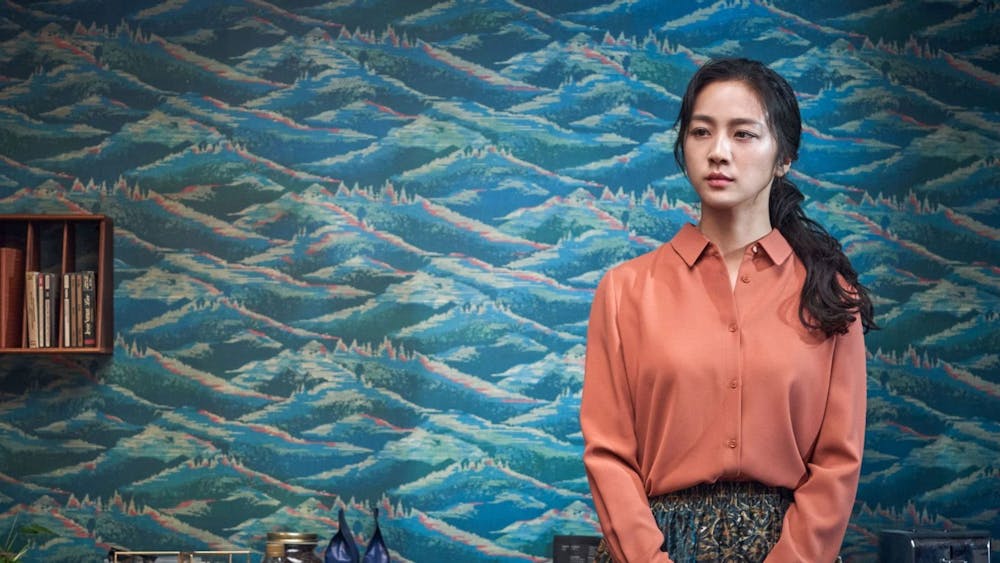In celebrated South Korean director Park Chan-wook’s most recent work, "Decision to Leave," pain is pleasure, and the act of falling in love can be contained within criminal investigation. “Just how a detective needs evidence in order to solve a case, when you’re in love, you are constantly looking for evidence of whether this person loves you or doesn’t love you,” states Park in a recent interview with the Los Angeles Times. It’s "Vertigo" with a modern Every Frame a Painting artistic twist.
The film’s main character, insomniac detective Jang Hae-jun, is called to a case in which a hiker has died under suspicious circumstances: he was found, ostensibly fallen, at base of a cliff face he’s climbed oftentimes before. His widow, the beautiful Seo-rae, is called in for questioning — and immediately Hae-jun finds himself inextricably drawn to her, despite her eerie nonchalance towards her husband’s death appaling nearly everybody else on the case.
For them, hurt and crime open up spaces of intimacy. A prolonged stake-out at Seo-rae’s apartment complex transforms into acts of stalking, then provides the opportunity for domestic scenes. Hae-jun watches her feed and coddle a stray cat, receives an invitation into her home and cooks her dinner. They eat a spread of sushi together in the investigation room following his questioning of her and hold hands while handcuffed together in the back of the police car. Photo evidence of her bruises and scratches skew pornographic when he insists on keeping them despite her eventual dismissal as a suspect.
But for Hae-jun, the needle-thin balance between pain and pleasure, violence and sex, always seems to tip towards the former; just as Seo-rae begins reciprocating his attention, he discovers damning evidence that she was the perpetrator all along in the form of a switched cellphone, her real one recording that she climbed the cliff face her husband died at on the very same day. Her rough hands, which Hae-jun previously found beguiling, were caused by the friction from the rugged ascent, the scratch on one of them given to her by her husband when she pushed him and he scrabbled for purchase. In becoming closer to Hae-jun, she was merely using the opportunity to destroy evidence he had of her, burning pictures of her husband and other cold cases tacked on the walls of his home and citing them as haunting and the reason for his inability to sleep.
Hurt, but still deeply in love, he tells her to throw the phone into the sea, and moves away to Ipo to be with his wife, telling Seo-rae that he is “shattered” because of her. But thirteen months later, we find Seo-rae’s back, moved to Ipo herself with a new husband. Just as soon as he stopped loving her, she says, she started loving him. She can’t be rid of him, so he can’t be rid of her.
But the erotic high of the tension that permeates the mood of the film cannot last forever. Seo-rae, as a murderer, cannot be with Hae-jun; he knows her guilt, there’s never a guarantee he won’t end up another dead husband of hers. After all, the lines between delirium and psychological reality for Hae-jun when it comes to Seo-rae’s actions and intentions are practically indistinguishable.
And she, in her own cryptic, circumlocutious way, understands this. Seo-rae drives to the beach, digs a pit into the sand, and enters it just as the tide begins to rise, the waves pushing the sand back over her. She leaves for Hae-jun a single message: her cell-phone, with the recording of his voice telling her he is “shattered.”
In the final scenes of the film, Hae-jun yells frantically for Seo-rae, stumbling in the surf, as his figure shrinks smaller and smaller from the camera’s slow pan out. The dramatic irony here is, of course, that she’s right there, entombed in the sand underneath his own feet. And thus she fulfills her ultimate desire – with her apparent bodily disappearance into the waves of the sea, she’s become one of his “unsolved mysteries,” someone whose image may be pinned on the walls of his living-room or seared into his head, keeping him awake at night. With her suicide, she guarantees that just as much as she will belong to him, he will to her, forever, a endless high.
It’s hurt as intimacy.
Get The Chronicle straight to your inbox
Signup for our weekly newsletter. Cancel at any time.

